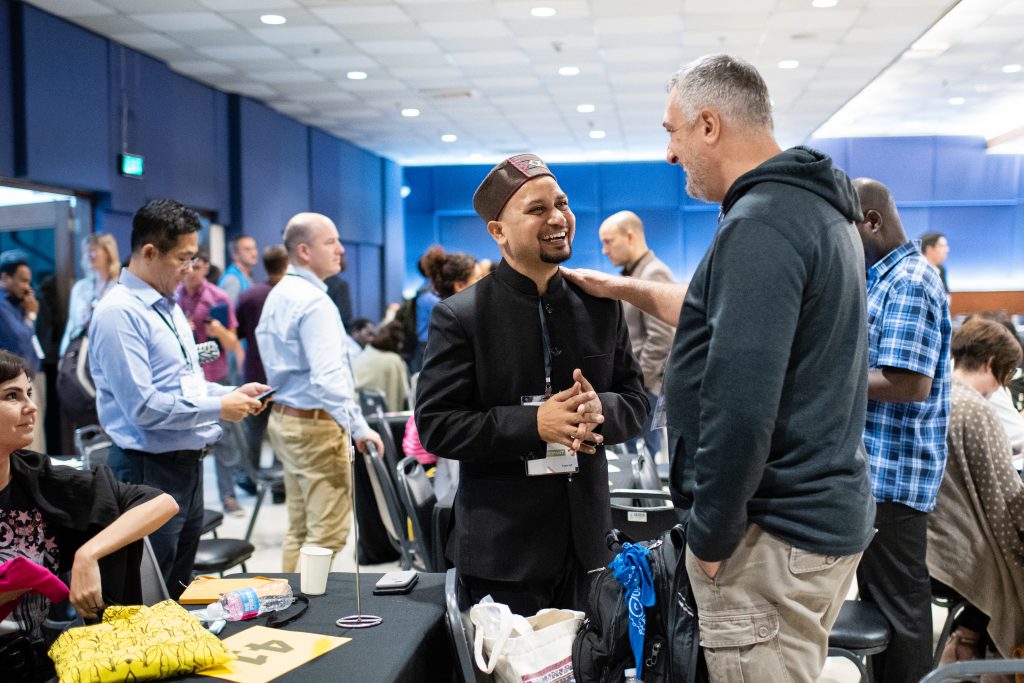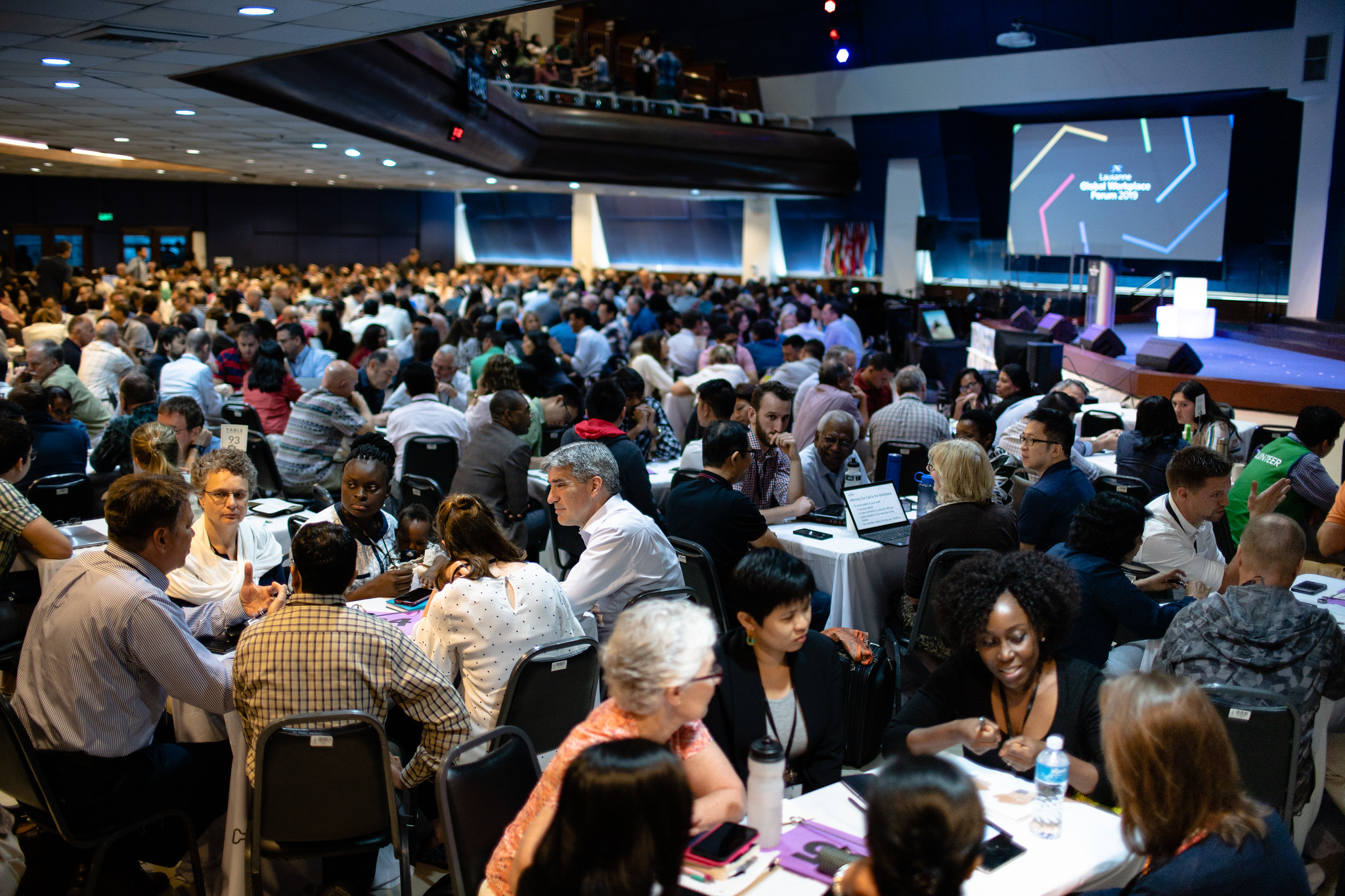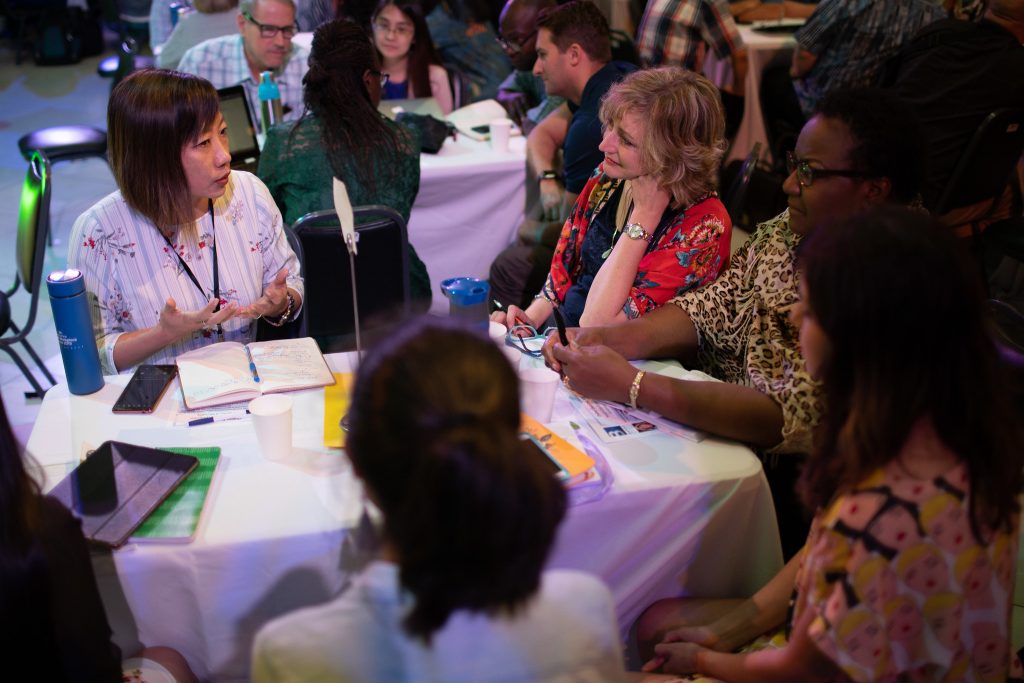‘I believe that one of the next great moves of God is going to be through believers in the workplace.’ This quote from founder Billy Graham sums up the purpose of the most recent gathering hosted by the Lausanne Movement, the Global Workplace Forum (GWF2019), held at Greenhills Christian Fellowship in Manila, Philippines.
Ninety thousand hours. This refers to the average amount of time a person spends in work in his or her lifetime. As this translates to roughly a third of a person’s lifetime, the Christian’s presence at work presents itself as the most natural, and at the same time, most overlooked opportunity to evangelize the world.
‘In order to fulfill the Great Commission, every believer needs to be a minister and every workplace a place of ministry’, said Bishop Efraim Tendero of the World Evangelical Alliance (WEA), welcoming participants of the forum to Manila.
‘The Great Commission can never be fulfilled by pastors and missionaries alone’, said Michael Oh, Global Executive Director/CEO of the Lausanne Movement. Yet ‘the falsehood of a “sacred-secular divide” has permeated the Church’s thinking and action’ (The Cape Town Commitment).
The Global Workplace Forum stands on the shoulders of the Commitment as it declares, ‘We name this secular-sacred divide as a major obstacle to the mobilization of all God’s people in the mission of God, and we call upon Christians worldwide to reject its unbiblical assumptions and resist its damaging effects.’
Bob Doll, Senior Portfolio Manager and Chief Equity Strategist at Nuveen Asset Management and Chair of Lausanne’s Board of Directors, said, ‘Marketplace leaders need to come alongside pastors and the non-profit sector to get it right. Not one of those groups can do it alone.’
GWF2019 called Christians globally to move away from a mindset that leaves faith and work in separate boxes in our lives. ‘The marketplace is becoming increasingly open to the idea of bringing your whole self to work—including your faith’, said David Miller, Director of the Princeton University Faith & Work Initiative.
This gathering was the first of its kind in Lausanne’s history, where the majority of the participants, 65 percent of the near 900 participants from 110 countries were Christians whose primary place of work is outside of churches or ministry organizations. They represented a landscape of the global workforce, from manual laborers to CEOs, entrepreneurs and investors, blue-collar, white-collar, ‘pink-collar’, as well as ‘no-collar’ workers, those who work as homemakers or caregivers in the often unseen workplace called home. Included were 200 virtual participants interacting with the programme and each other online.
The mindset shift needed includes a change in how we look at work, neither in an idolatrous way nor as simply utilitarian. But work as worship embraces the daily call to love our neighbours at our specific workplaces. We might echo the lawyer’s question in Scripture, ‘And who is my neighbour?’ Mats Tunehag, Lausanne Catalyst for Business as Mission, reminded us that when we do business, we impact many neighbours around us—our family, co-workers, clients, suppliers, shareholders, tax authorities, and even our competitors.
Work as worship also speaks to our call as co-creators and agents of God’s transforming mission, with a macro vision of kingdom impact in every sphere of society. ‘God has created this earth with everything we need, but he is now asking us to join him in this process of creation. We are in some way, co-creators with God. When we think about work like this, it is a different sense than managing something that is already there. We are entrusted with moving God’s creation forward’, said Andy Mills, Co-Chairman of the Grace & Mercy Foundation.
But to caution us from a triumphalism about our call to the sacred work we see in Genesis 2, we were reminded by Jeff Haanen, CEO and Founder of Denver Institute of Faith and Work, to also see the brokenness of work after the Fall in Genesis 3. He reminded us that two-thirds of the world’s workforce is not made up of professionals who see work as ‘do what you love’, but of the working class who see its fallenness.
We heard about the dark side of work from Edielyn Beltran, a former domestic worker from the Philippines to Qatar, where she worked 17 hours a day, no days off, until she was able to run away 11 months later. Pranitha Timothy, Lausanne Catalyst for Freedom and Justice, also warned, ‘The global workforce could be the number one reason for making our children vulnerable to abuse.’
The complexities of work around the world was recognized in talks that looked at how the workplace intersects with topics like health, poverty, economic injustice, women’s empowerment, human trafficking, children-at-risk, urbanization, artificial intelligence, and more. Case studies of gospel transformation through workplaces and businesses around the world were presented. Participants interacted in table groups, worked together in creative collaborative spaces called labs, and attended seminars, regional meetings, and experiential site visits at companies and organizations around Manila.

The Global Workplace Forum intended to energize the global workplace movement and allow a platform for new connections to happen. In Lausanne’s Connector app, 19 thousand new connections were logged since the app launched just before GWF. The Connector will serve as an ongoing tool to support these connections to continue beyond the gathering, and will integrate with other gatherings across the Movement.
The other outcome hoped for is to engage the global church in workplace ministry to turn their attention to this missing link in global mission. For this reason, GWF2019 content will not just be for participants only. Lausanne’s website will host a growing volume of resources and tools at lausanne.org/gwf available to anyone.
Tools and Resources from GWF2019
- Selected videos from the plenaries (more to be published in the weeks ahead)
- Official photos from the forum
- Social media from #gwf2019
- Resources from the forum


